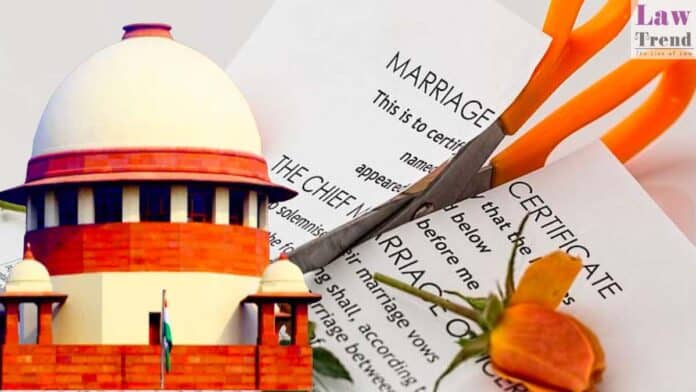The Supreme Court said on Monday contesting parties cannot directly approach it and seek dissolution of marriage on the ground of irretrievable breakdown by filing a writ petition under Article 32 of the Constitution.
A five-judge constitution bench headed by Justice S K Kaul, while referring to a top court verdict delivered earlier by a two-judge bench, said it was rightly held that any such attempt must be spurned and not accepted, as the parties should not be permitted to file a writ petition under Article 32 before the top court or under Article 226 before the high court seeking divorce on the ground of irretrievable breakdown of marriage.
“The reason is that the remedy of a person aggrieved by the decision of the competent judicial forum is to approach the superior tribunal/forum for redressal of his/her grievance. The parties should not be permitted to circumvent the procedure by resorting to the writ jurisdiction under Article 32 or 226 of the Constitution of India, as the case may be,” said the bench, which also comprised Justices Sanjiv Khanna, A S Oka, Vikram Nath and J K Maheshwari.
The bench made these observations in its verdict which held the apex court has the discretion to dissolve a marriage on the ground of “irretrievable breakdown” in exercise of its plenary power under Article 142 (1) of the Constitution and can grant divorce by mutual consent while dispensing with the 6-month waiting period mandated under the Hindu Marriage Act, 1955.
More importantly, it said, relief under Article 32 can be sought to enforce the rights conferred by Part III of the Constitution and on the proof of infringement thereof.
It also noted that judicial orders passed by the court in, or in relation to, the proceedings pending before it, are not amenable to correction under Article 32.
“Therefore, a party cannot file a writ petition under Article 32 of the Constitution of India and seek relief of dissolution of marriage directly from this court,” the bench said.




